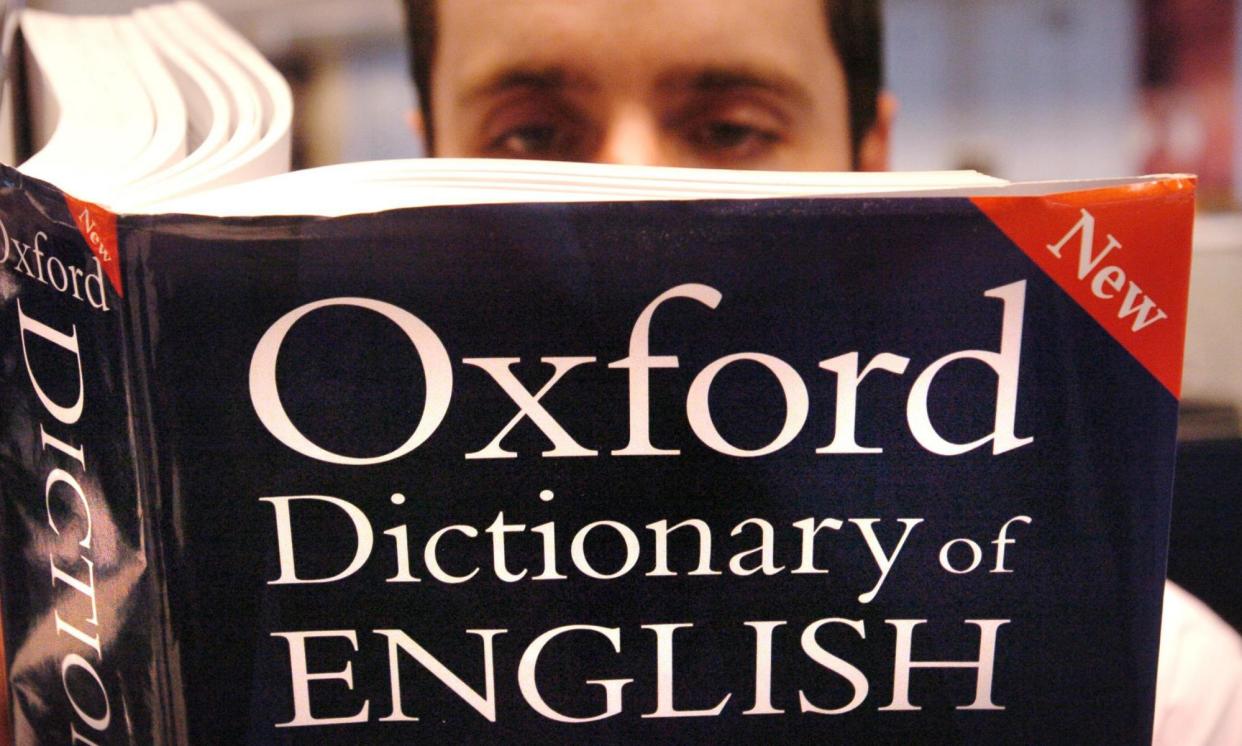‘Wokery’, ‘safe word’ and ‘forever chemical’ added to the Oxford English Dictionary

“Wokery”, “safe word”, “forever chemical” and “swear box” have all been added to the Oxford English Dictionary in its latest update.
The OED is updated quarterly with new words, senses and revisions to entries, to reflect changes in word usage and to include new terms relating to current events and trends. The December 2023 update, announced on Thursday, features new words related to technology, polluting chemicals, politics, literature and sex.
“Wokery” and “wokeism”, disparaging nouns meaning “progressive or leftwing attitudes or practices, esp. those opposing social injustice or discrimination, that are viewed as doctrinaire, self-righteous, pernicious, or insincere”, were added. Another definition of “wokery”, denoting a restaurant, food counter, or kitchen serving dishes using a wok, was also included in the update.
Another politics-related term, “chumocracy”, also features. It is said to mean a culture characterised or dominated by “influential networks of close friends”, and has previously been used to describe British politics.
“Safe word”, meaning “a word or phrase chosen by participants in sexual activity (esp. BDSM role play) as a mutually agreed signal to stop or pause”, was another addition.
Related: Hallucinate, AI, authenticity: dictionaries’ words of the year make our biggest fears clear
A number of technology- and internet-related words were added, including “screen-share”, “generative artificial intelligence” and “talkboard”, meaning an online forum or chat room.
“Forever chemical” and “PFAS” were also added. These words describe synthetic compounds, for example those used in cookware for their non-stick properties, that do not break down in the environment.
Literary terms also made it into this update. One was “Gradgrindian”, an adjective used to describe something that is characteristic of Thomas Gradgrind, the schoolmaster in Charles Dickens’s novel Hard Times, or “hard and cold, and solely concerned with facts; oppressively utilitarian”.
A second bookish term was “Chekhov’s gun”, a literary principle articulated by the Russian writer Anton Chekhov which holds that unnecessary elements should not be introduced into a story. Chekhov said that, as an example, a gun should not be mentioned in a play if it is not going to be fired later. The OED notes that the principle has been often criticised, and “some have also observed that it does not seem to be applied consistently even in Chekhov’s own output”.
In 2018, the OED added “mansplaining” to the dictionary, a verb used to describe a man explaining something “needlessly, overbearingly, or condescendingly”. In the current update, the team added the suffixes “-splain” and “-splaining”, giving several usage examples including “straightsplaining”, “mumsplaining” and “Biblesplain”.
The OED began as a crowdsourcing project in the late 1800s, when a call went out to send in words and meanings. Seventy years later, in 1928, the first version was completed with 414,825 entries. The 3,000 volunteers who sent in words included Henry Spencer Ashbee – who owned the largest collection of pornography and erotica in the world, and submitted words related to genitals, pornography and bondage – and Eleanor Marx, Karl’s daughter.
Other words added in the latest revision include “taliswoman”, meaning a talisman associated with a woman; “Stephanian”, an adjective describing something related to people named Stephen, Stephens, or Stephanus; and “hypnic jerk”, meaning the “involuntary spasmodic or convulsive movement of the body or a part of the body, occurring when a person is beginning to fall asleep”.


